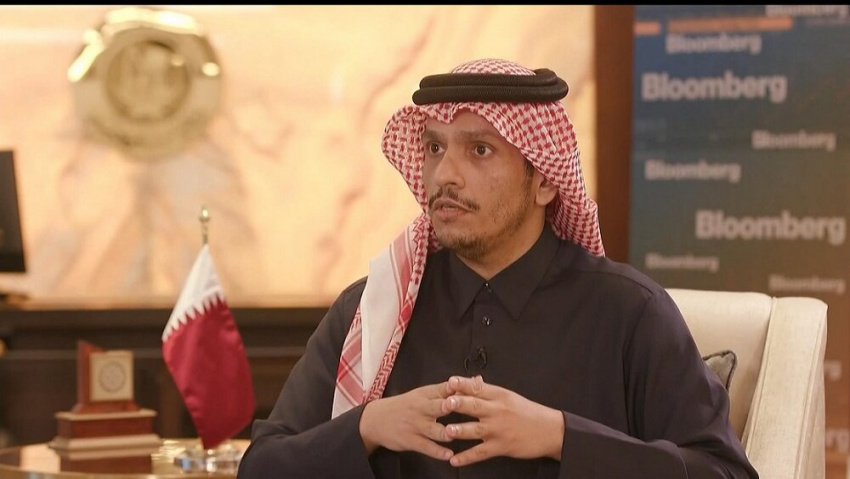Qatar urges Arab states to start talks with Iran

In an interview with Bloomberg TV, Qatari Foreign Minister Sheikh Mohammed bin Abdulrahman Al Thani once again expressed hope that a summit between leaders of the six-member Persian Gulf Cooperation Council and Iran would happen.
“We are hopeful that this [summit] would happen and we still believe that this should happen. And I think this is also a desire that being shared among the other GCC countries. I just mentioned to you that there is a difference between the countries on the way how to approach such a dialogue. Also from the Iranian side. They have expressed their willingness several times to engage with the GCC countries,” the Qatari foreign minister said.
He said the time should come when the Persian Gulf’s Arab states will sit at the table with Iran and reach a common understanding. “We have to live with each other. We cannot change geography. Iran cannot move the GCC away from its neighborhood and the GCC cannot move Iran from the neighborhood,” bin Abdulrahman continued.
The comments come a few weeks after Qatar mended ties with its Arab neighbors in a reconciliation deal brokered by the U.S. The deal put an end to a three-year-and-half dispute between Qatar and an Arab quartet of Saudi Arabia, the United Arab Emirates, Bahrain and Egypt. In June 2017, Saudi-led Arab quartet severed diplomatic ties with Qatar and imposed a total blockade on the tiny Persian Gulf nation. The four countries closed their airspace, land, and sea routes to Qatari planes, cars, and vessels, a move that prompted Qatar to use Iranian airspace. Kuwait, a country stuck in the middle of the dispute between its neighbors, had studiously worked to reconcile the opposing sides and succeeded in doing so in December.
Iran welcomed Kuwaiti mediatory efforts. “We welcome understandings in the Persian Gulf announced by Kuwait. Iran's longstanding policy is diplomacy, good neighborly relations & regional dialogue. We hope reconciliation contributes to stability and political & economic development for all peoples of our region,” Iranian Foreign Minister Mohammad Javad Zarif tweeted in December.
After resolving ties with its Arab neighbors, Qatar now seems to be trying to foster dialogue between Iran and Arab states. The Qatari foreign minister also expressed hope that the much-anticipated talks between Iran and the U.S. on the 2015 nuclear deal –officially known as the Joint Comprehensive Plan of Action (JCPOA)- would help soothe tensions between Iran and its Arab neighbors.
Bin Abdulrahman expressed hope that what will happen between Iran and the U.S. on the JCPOA would contribute to resolving the differences between Iran and the GCC. “Of course, things are interconnected at the end of the day,” he noted, adding that Qatar will support negotiations between the stakeholders.
“We will be welcoming this idea. We maintain a good relationship with the U.S. and we maintain a good relationship with Iran,” bin Abdulrahman stated.
He said his country has shared borders with Iran, adding that this country stood with Qatar and supported it during the crisis. The chief Qatari diplomat implied that Doha could act as a go-between Iran and Arab countries or the U.S.
Underlining the mutual respect between Doha and Tehran, the Qatari foreign minister said that his respect “allows Qatar to play such a role.”
On the South Korean ship seized by Iran, bin Abdulrahman confirmed that Qatar has received a request for help from South Korea. “We have received a request from the Korean government. Right now, we are working on it with Iran to find a way. They are talking to each other directly,” he said. “We hope that we can help in facilitating any talks for the release of the tanker.”
Source: Tehran Times

